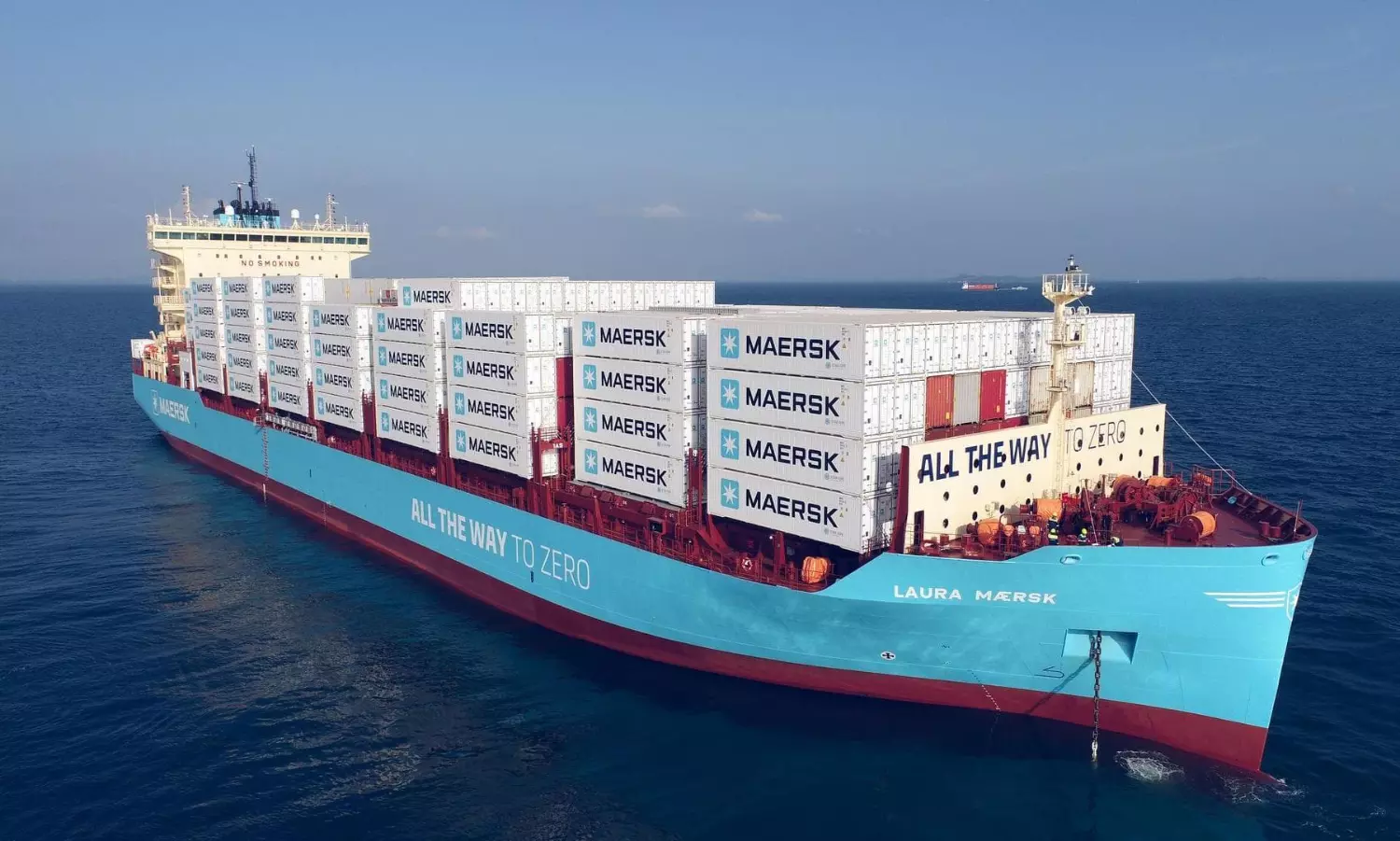Shipping CEOs join forces to accelerate decarbonisation
United view at COP28 on concrete regulatory measures for investment conditions critical to accelerate green transition

Chief Executive Officers (CEOs) of leading global shipping lines issued a joint declaration at COP 28 calling for an end date for fossil-only powered newbuilds, and urging the International Maritime Organization (IMO), the global regulator, to create the regulatory conditions to accelerate the transition to green fuels.
"Global temperatures are breaching critical levels, creating more frequent and devastating results. Therefore, the importance of shipping achieving IMO’s 2030, 2040, and net-zero 2050 greenhouse gas (GHG) targets is very clear. The only realistic way to meet those targets for an industry that accounts for two-three percent of global GHG emissions is to transition from fossil to green fuels at scale and at pace," says the declaration.
The joint declaration calls for the establishment of four regulatory cornerstones:
*An end date for new building of fossil fuel-only vessels and a clear GHG intensity standard timeline to inspire investment confidence, both for new ships and the fuel supply infrastructure needed to accelerate the energy transition.
*An effective GHG pricing mechanism to make green fuel competitive with black fuel during the transition phase when both are used. "This can be done by distributing the premium for the green fuels across all the fossil fuel used."
*A vessel pooling option for GHG regulatory compliance where the performance of a group of vessels could count instead of only that of individual ships, ensuring investments are made where they achieve the greatest GHG reduction and thereby accelerating decarbonisation across the global fleet; and
*A Well-to-Wake or lifecycle GHG regulatory basis to align investment decisions with climate interests and mitigate the risk of stranded assets.
“Shipping is at the forefront of technological innovation when it comes to decarbonisation and at MSC our fleet renewal strategy includes 100 dual fuel vessels," says Soren Toft, CEO, MSC Mediterranean Shipping Company. "We are proud to be part of this unprecedented collaboration with our peers and it is only right that together we follow this path towards net zero that we must achieve by 2050. MSC has fully supported and committed to net decarbonisation by 2050 but without the full support from other stakeholders, particularly energy providers, it will be extremely difficult to meet those objectives - no one can do this alone."
Vincent Clerc, CEO, Maersk adds: “Maersk wants to accelerate the green transition in shipping and logistics and a crucial next step is to introduce regulatory conditions which ensure that we create the most greenhouse gas emission reductions per invested dollar," says "This includes an efficient pricing mechanism to close the gap between fossil and green fuels and ensuring that the green choice is easier to make for our customers and consumers globally. The momentum for green fuel is building and we are pleased to see strong partnerships across the industry as we continue our joint efforts of making decarbonisation in shipping successful."
Rodolphe Saadé, Chairman and Chief Executive Officer, CMA CGM Group says: “This new commitment is fully in line with the CMA CGM Group's ambition to be Net Zero by 2050. We have already invested close to $15 billion in decarbonising our fleet, which will enable us to have almost 120 vessels capable of being powered by decarbonised fuels by 2028. Pioneer in LNG as a transition energy, our Group has also launched several large industrial partnerships to diversify our sourcing with even more decarbonised fuels. In 2023, the CMA CGM Group will reduce its CO2 emissions by around one million tonnes."
Rolf Habben Jansen, Chief Executive Officer, Hapag-Lloyd: “Our collective responsibility for a sustainable future and clean practices is paramount. At Hapag-Lloyd, we reaffirm our commitment to advance the decarbonisation of the maritime industry and strive to be at the forefront of the energy transition. We believe that a regulatory framework and clear targets are crucial to accelerating the introduction of alternative fuels and reducing our carbon footprint. This commitment is in line with Hapag-Lloyd's goal of achieving a net-zero carbon fleet by 2045 and reflects our industry's unwavering commitment to environmental responsibility."
Lasse Kristoffersen, President and Chief Executive Officer, Wallenius Wilhelmsen: “At Wallenius Wilhelmsen, we have decided to be a shaper of the journey to net-zero and focus our investments in supporting this ambition. Our customers want to partner with us on the voyage. Now, we need a global regulatory framework matching this ambition to drive the investments needed at a global scale.”


